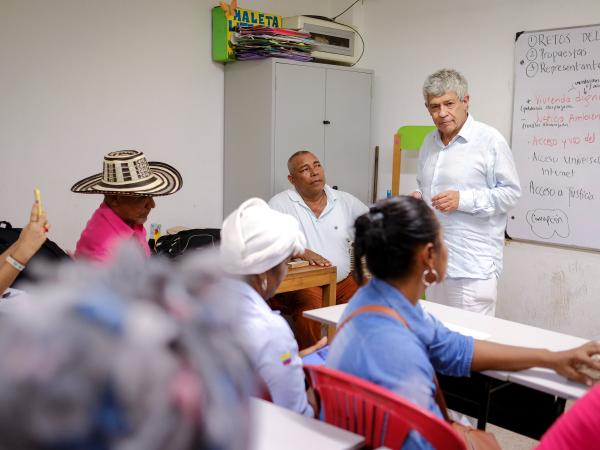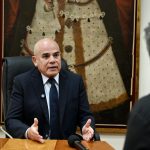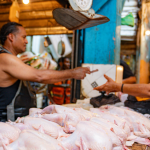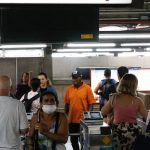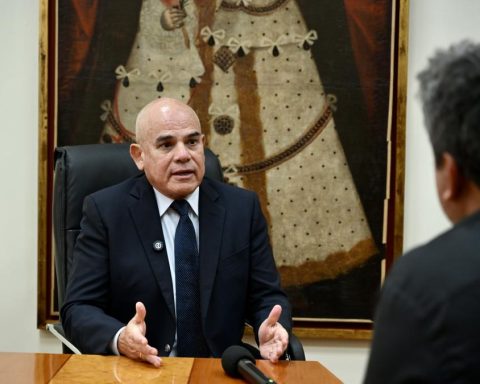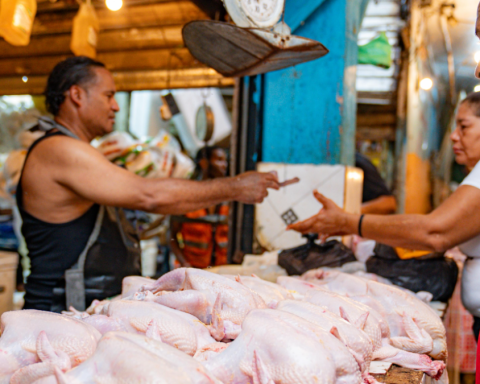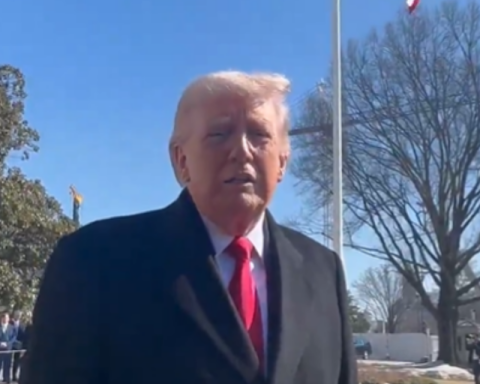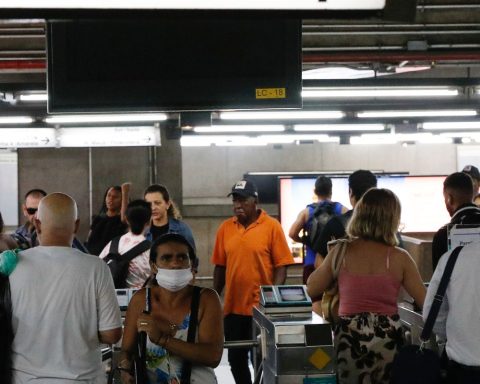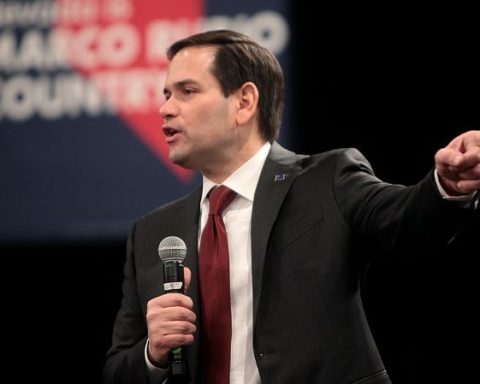Since last September 16, the National Government began the Binding Regional Dialogues for him National Development Plan (PND) 2022-2026, with which it was proposed to listen to the citizens and ‘take note’ of the proposals for the roadmap of these four years of mandate.
(See: Fighting hunger, central axis of the first binding regional dialogue).
This week these spaces led by the National Planning Department will continue, starting this Monday with a meeting in Popayan (Cauca). The Government’s objective is to cover 50 territories between the months of September, October and November, to give greater participation to the regions in the construction of the PND.
On the first day, held in the municipality of Turbaco (Bolívar), the Government received the proposals of more than 2,000 people from 23 municipalities of Bolivar, Atlantic and Sucre, and some of the issues that were put on the table have to do with the Canal del Dique and the impact on this area of the country; the participation and inclusion of women; education focused on local employment; the water and aqueduct service; the floods; land use planning and the creation of tertiary roads.
According to National Planning, it is expected to gather proposals on issues related to the strengthening of physical security (Police and Army) and social security (health, education, employment, natural tragedies, vulnerability threat); the strengthening of agricultural production and modernization of agriculture; inclusion of small producers; early childhood support; the concentration of the land; rise of the green economy; and eliminate socioeconomic gaps between regions, among other goals.
(See: The government’s plan to acquire land and sell it to peasants).
“In these dialogues it is fundamental that we think about the country and the regions 20 years from now. If we do not advance like this, we will not achieve the structural transformations that we all need. In addition, we want people to help us establish priorities in these dialogues, so that we can present a National Development Plan that reflects the most important goals that we have as a nation.”, stressed the director of the DNP, Jorge Iván González.
But the construction of the National Development Plan, although carried out from the regions, has also given space to different actors. Proof of this is that last week, dialogues began from the executive committee of the National Table for Effective Participation of Victims, who are organized in departmental and municipal tables, to review the incidence that this population will have in the construction of the PND and in relation to the Government’s bets.
Also, from National Planning, the rectors and vice-rectors of public and private universities were invited to be part of the binding regional dialogues.
These will be linked at four levels of participation: from support with facilities and the appointment of professors for the rapporteurships, to the contribution of regional studies. Also to focus projects related to science and technology, and according to González, to help the entity to “recover the principle of planning in the country”.
(See: Produce 100% clean energy in 10 years, Colombia’s goal).
As explained by the Government, The PND 2022-2026 will be based on three pillars: peace, environmental justice and social justice. These, in turn, will be supported by six guidelines: territorial planning towards total peace, human security and social justice; human right to food, energy transition and green growth with environmental justice; social-regional convergence and macroeconomic stability.
“It is useful and important that the National Development Plan has different levels of discussion, and a new one in this context is the one that is proposed. This must be complemented with political dialogue, with sectoral and expert dialogue”, assured the Dean of Economics at the Universidad del Rosario, Carlos Sepúlveda.
On the other hand, Eduardo Lora, former director of Fedesarrollo and associate of the Harvard Center for International Development, He stressed that the PND is something key for the Government because it has the force of law. “It is the opportunity to coherently put strategies in different fields. The fact that the regions have to participate in policy matters is fundamental“, said.
In total there will be 50 meetings of the Binding Regional Dialogues.
John Montaño / THE TIME
The ministries contribute their agenda
The Development Plan is not built only from National Planning, but also ministries are also key.
(See: 2023 budget was approved in its first debate in Congress).
From Mintrabajo, for example, there has been talk of articulating policies aimed at generating employment “related to labor formalization, labor and pension structural reform and the consolidation of the associativity of the popular solidarity economy”.
From the Ministry of Transport there has been talk of promoting the railways, with the development of project prioritization criteria, regulatory review and updating, policy guidelines within the framework of the National Development Plan.
And on the side of Minagricultura, the processes of formalization and access to land ownership have been discussed.
(See: The austerity plan for 4 billion pesos proposed by the Government).
LAURA LUCIA BECERRA ELEJALDE
Journalist Portfolio
